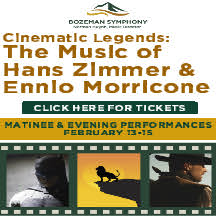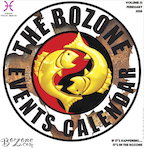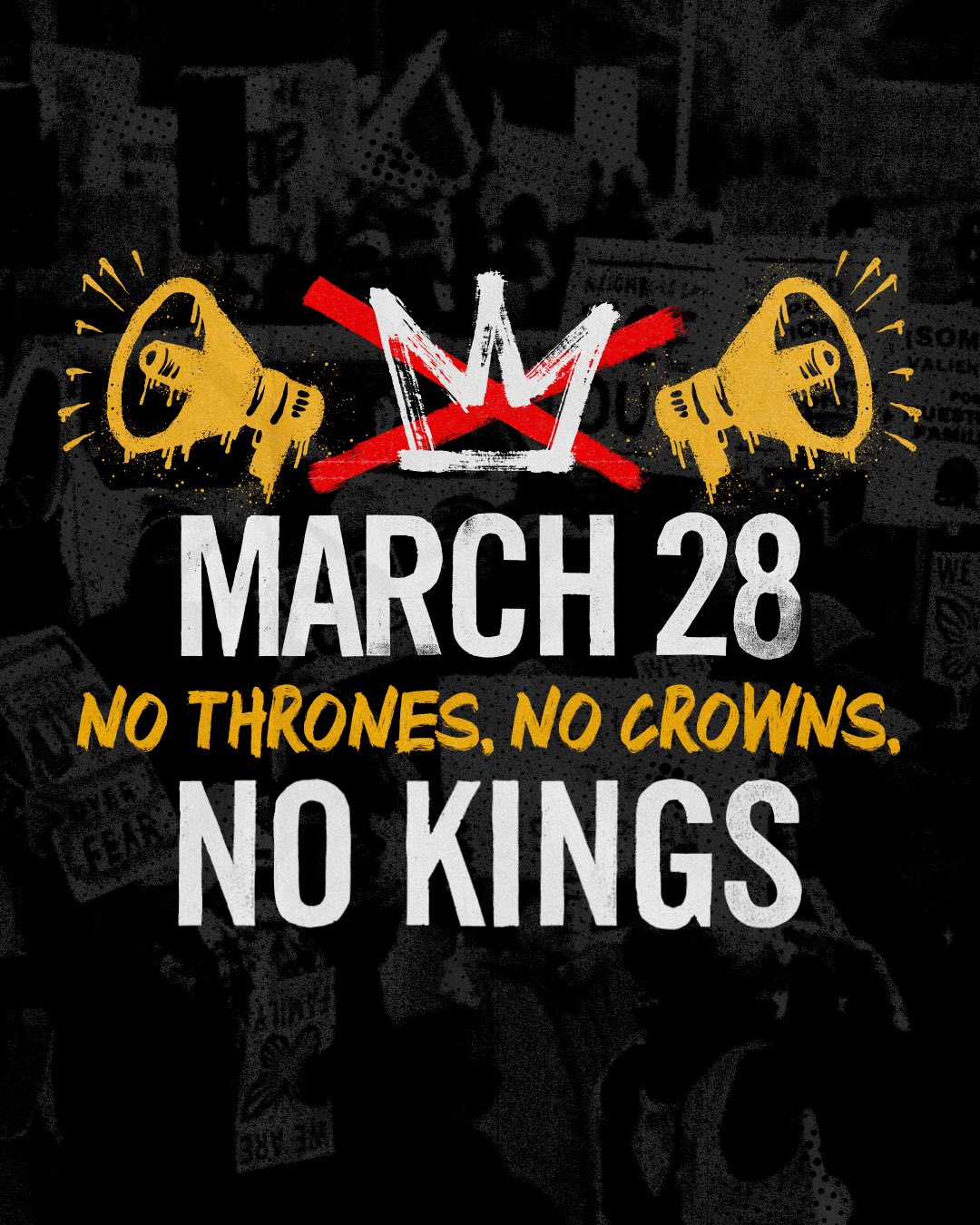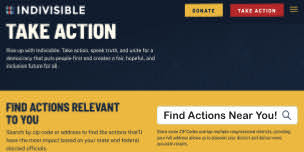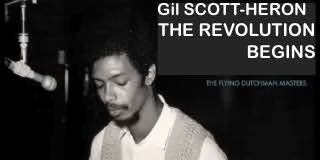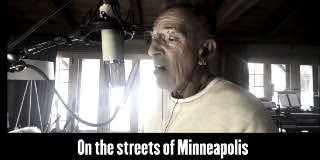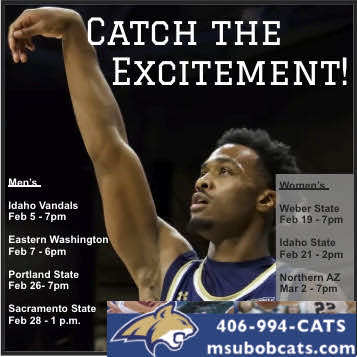Mountain roots & urban grooves collide w/ celebratory evening of music at Ellen
“A powerful blues and soul singer,” writes The New Yorker, Empire State-based performer Martha Redbone brings her Roots Project out West for its first-ever Montana shows this January.
The charismatic, award-winning songstress is celebrated for her tasty gumbo of roots music embodying the folk and country sounds of her childhood in the Appalachian Mountains mixed with the eclectic grit of her teenage years in pre-gentrified Brooklyn.
In anticipation of the Big Sky country tour stops, the Rolling Zone spoke with Redbone about the Roots Project and how she’s helping to keep the culture alive – and thriving.
RZ: You’re bringing the Martha Redbone Roots Project to Bozeman’s Ellen Theatre, as well as other Montana venues, early in the new year. I understand the performances to be experiential, cultural and full of life. What sort of preview can you give of the show?
MR: It’s a fun night of gospel and Americana, roots music from the mountains. What I really wanted to do with this whole Roots Project was to show how the mountains are today, and really how they’ve always been. Most people associate Appalachia with bluegrass music and just a whole bunch of white rednecks married to each other in the hills. That’s pretty much what’s been glamorized and stereotyped, and all of those things. So, I wanted to celebrate the music from this area. Number one, there are people from all different nationalities and cultures in those hills. The reason why we call it ‘folk music’ is because it was the music from every folk that came to the mountains. You can expect lots of call and response singing with the audience, church claps, a lot of hoot’n and holler’n, and really really fun music.
RZ: Your sound has been described as a “just-right mix of retro and modern” (Time Out New York) and an exploration of Americana roots (All Music), drawing from your early days in Appalachia and the Brooklyn of yore. How would you say these culturally rich but contrastive environments have shaped you as an artist?
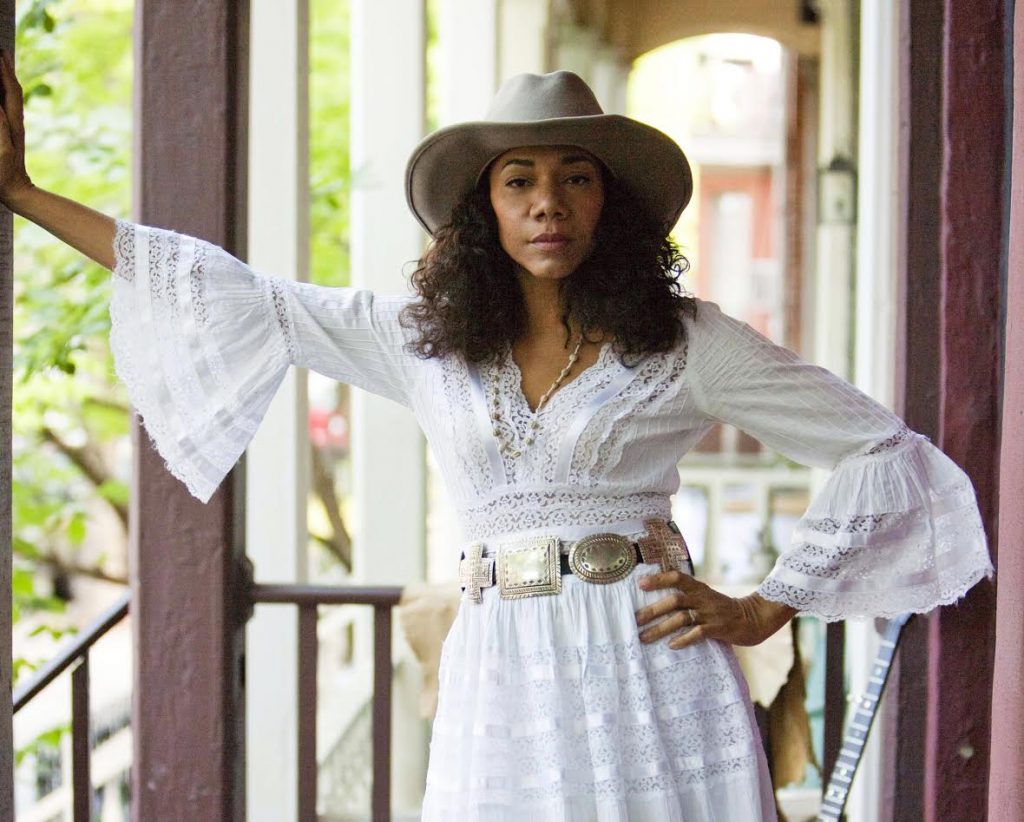
MR: I was very lucky, very fortunate to have a childhood in the country. You get to run around, you get rake leaves then jump in them, run along the creek. It’s so small and so safe – you leave your doors open. I had that childhood with my grandparents. Then I had my teenage years in New York. That was the beginning of Madonna and Prince and all those awesome clubs you heard stories about, Studio 54. And this was the ‘80s, kind of the beginning of hip-hop. Being in New York City as a teenager you’re just spoiled for culture and sophistication, you know, everywhere. I had the best of both things and have an appreciation for both, culturally and musically.
RZ: This same sort of juxtaposition can be found on The Garden of Love, the album which pairs your brand of soulful roots with the compositions of English Romantic poet William Blake. What prompted that juxtaposition and what were your overarching goals with the collection?
MR: The idea came from my partner and long-term collaborator, Aaron Whitby, who’s my husband as well. We’ve been a team for 25 years. We met in second grade, of course. [laughs] In the house we have tons and tons of books, and he rediscovered the Blake anthology on our shelves. We were already looking at putting together a project to honor Appalachia anyway, [with] mountain songs, stuff I grew up with that everybody knows. He found the book and said, ‘Hey this looks pretty cool, why don’t we have a look at a couple of these poems and think about setting these to some of the music. It might be a really good fit.’ And so, we checked them out and not only fell in love with just one or two, but we fell in love with a whole bunch. From there, it was pretty much an organic process. The language was just so beautiful and colorful. We don’t speak English like that anymore. It reminded me of my great grandma [and] grandma in church reading off this biblical kind of language. I loved the language and thought everything sang really well – and the genius of Aaron to think these poems could suit this music. When you hear the music and how we did it, it’s as if it was always like that. We asked a friend of ours, John McEuen from the Nitty Gritty Dirt Band, to produce for us and [add] his beautiful arrangements because he’s just an incredible banjo player. And there you have it!
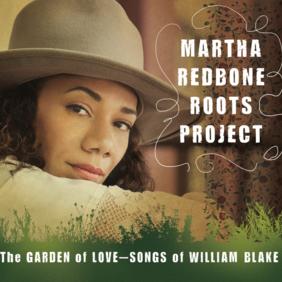
RZ: Because William Blake’s repertoire is so expansive, how was it these were the 12 poems selected for the collection?
MR: We found about 50 songs, 50 poems that we really loved and then narrowed them down. We actually read about 150 poems and I could sing something to all of them. Narrowing down is the hardest thing. What kind of struck us were the poems with messages that are relevant today, talking about times of war, where Blake is really pleading for compassion around the world, compassion for humankind; just a cry for having peace in the world and mercy on each other. Things that we’re still going through today, I mean, when you turn on the news and see children being put in cages and people being beaten to death for being trans or for the color of their skin, being just how they were born. I thought the language was put so beautifully and eloquently, and we could all use another reminder and find a way while we continue our quest to try to get along as human beings.
RZ: You’re no stranger to combining multiple art forms to tell a story. Tell us a little about the ‘Bone Hill’ theatrical project.
MR: It actually started with the Skintalk album where I wanted to have a voice for indigenous people, and particularly urban natives. From the Blake project, the Roots Project was a natural segue into the theatrical concert to Joe’s Pub and The Public Theater in New York. [We were] commissioned to create a concert that also tells some kind of story. And with our kind of magical, organic journey from this Roots Project, we were able to put together this family story through music. It honors our home and where we are today and how we all keep our family cultures alive. With the help of The Public Theater, we made a beautiful 90-minute storytelling concert. It’s great fun.
RZ: To give credit where credit’s due, you’re but half of “the little engine that could,” the other being the previously mentioned Aaron Whitby. Obviously he’s been instrumental to the success of your projects, but how would you say his continued involvement has elevated your own artistry?
MR: He’s a genius, first and foremost. He’s not aware of it but I am. [laughs] Whatever it is that I sing, he can find the way to make the most beautiful chords and arrangements, and that’s something very rare. As a professional singer, I’ve worked with a lot of different producers – so many because you do sessions, you do jingles for tv commercials and for radio. You’re working with different people all the time. And Aaron and I have written and produced songs for other artists, as well. We both do a little bit of everything but I’m a heavier lyricist than he is and he’s the heavier musician than I am. When I met him, he was very generous, very kind, and very concerned that women in music production also came forward. Before then, it was very much like the girl sits and writes lyrics and the boy does all the music and production, which is not true of course; but at the time that we met there were very few female engineers and producers. There still are very few to this day. We’re still moving forward, but we have a long way to go. He was one of the very first people that said, ‘Listen, you know how you want your voice to sound, so here.’ That’s a strength and just his character in general. He’s extremely humble and helpful, which is a real gift to have.
RZ: It’s great to say you’ve got a teammate like that.
MR: Yeah, it is. It really is. That was great – and so good that I married him. [laughs] Final sale, no return.
RZ: Apart from your busy performance schedule, you also lend your talents to various music workshops in benefit of our nation’s youth, among others. How important is it to encourage a love of music in our children, of the arts in general?
MR: It’s crucial. As the saying goes, music is the universal language. Before people could even speak, they were communicating through music and melody. It’s really a shame that it’s been cut in a lot of schools, it should be an integral part of the schoolwork. Learning music improves reading and math skills, things children tend to really hate doing in school – but if there were music involved, it would be much easier to understand. The workshops I do [are] cultural preservation through music. We’re Eastern, Southeastern Woodlands, and we’re honoring our culture. We’re living in a time where indigenous people, Native Americans – we’re kind of fighting for our existence and our roles in society. We have to keep ourselves alive because people have been told we don’t exist. It’s an uphill battle but we have to educate people about our existence, that we’re still here. We’ve been so stereotyped and so misinformed and objectified, and all of these things. There’s just so little truth out there that it’s really important each of us, from all of the nations, tell our stories. And for me, what better way than sharing our music with young people so that they know who they are, too, as time goes on.
RZ: At the end of the day, what’s your primary motivator to create a new piece of music, to get up on stage, or perform for a roomful of eager kids?
MR: I think it’s very simple at this point. I grew up with an indigenous mom and was bullied as a kid. People made jokes and said she was Chinese, and when I corrected them, they would say the Indians are dead. So, I’m fighting for us to stay alive, first and foremost. And number two, I’m a mother now. When you have children, everything starts to change. You start realizing what you feel is important, what you want to leave on this earth for your children and your children’s children, should they choose to have it or not. You want to know who you are, and you want to keep that connection. And now the world is bigger, people are traveling for work and relocating, and you need that connection to your homeland in some way. And now of course, we’re kind of fighting for all of these pipelines and things like that that are going through our homelands. It seems like the way things are going, pretty soon we’re not going to have many homelands left. So, it’s really important that we all know where we come from and we carry that with us throughout the world. Situations change but you still have to maintain who you are and what keeps our families moving forward.
RZ: What does the foreseeable future look like for Martha Redbone? Perhaps some new music? I’d imagine more touring and storytelling.
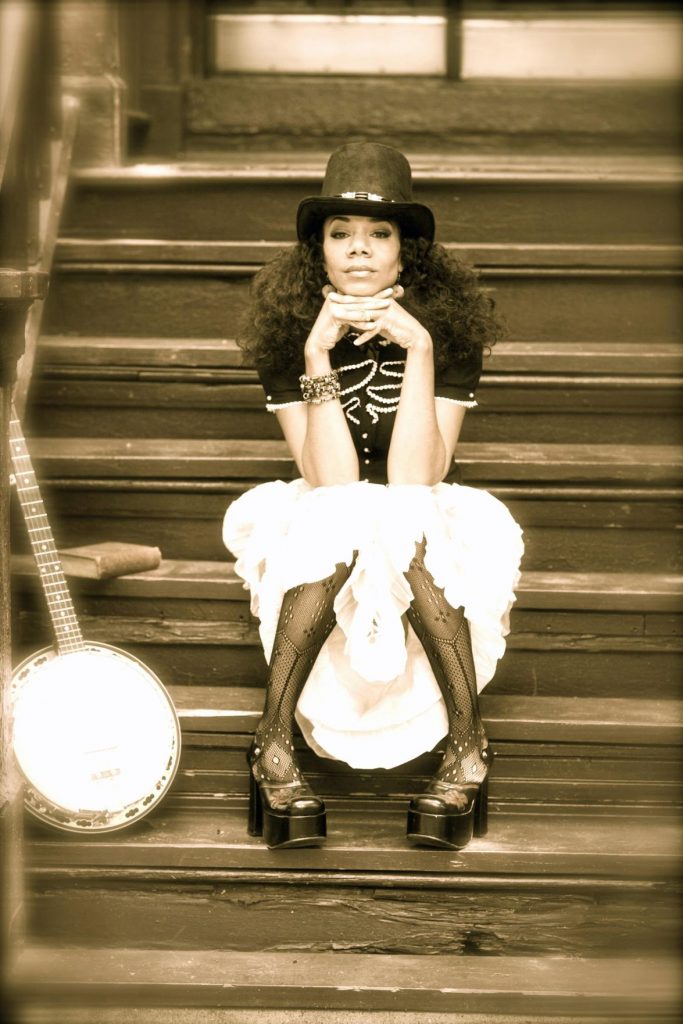
MR: Yes, sir. We have more touring and we’re actually developing another piece with The Public Theater that we’re thrilled about. There’s more to come on the family story, the kind of next phase. It’s really good fun and I feel so fortunate to be able to create music and write for a living. It’s such a privilege and I don’t take it lightly. That’s what we have to come – and a new album, at last!
RZ: Do you have a final message before we see you next month?
MR: We’ve never been to Montana before, so I’m really looking forward to it. We’ll be in Helena and then Billings and then Bozeman. This is new territory, and nothing beats a warm welcome from people just coming and taking a chance on us and bringing some friends. I really hope they enjoy themselves.
The Martha Redbone Roots Project comes to Downtown Bozeman’s Ellen Theatre on Saturday, January 12th. The music begins at 7:30pm. Tickets to the all-ages show are $26 at www.theellentheatre.org. Wine, beer, and other refreshments will be sold in the lobby ahead of the performance.
Prior to the Bozeman show, Martha Redbone will play Helena’s Myrna Loy on Wednesday, Jan. 9th. Ticketing information is available at www.themyrnaloy.com. For tickets to the Alberta Bair show in Billings on Friday, Jan. 11th, visit www.albertabairtheater.org.
Learn more about the Roots Project at www.martharedbone.com or find them on Facebook for updated tour details and other announcements. Their latest album, The Garden of Love, is available for download now. •

